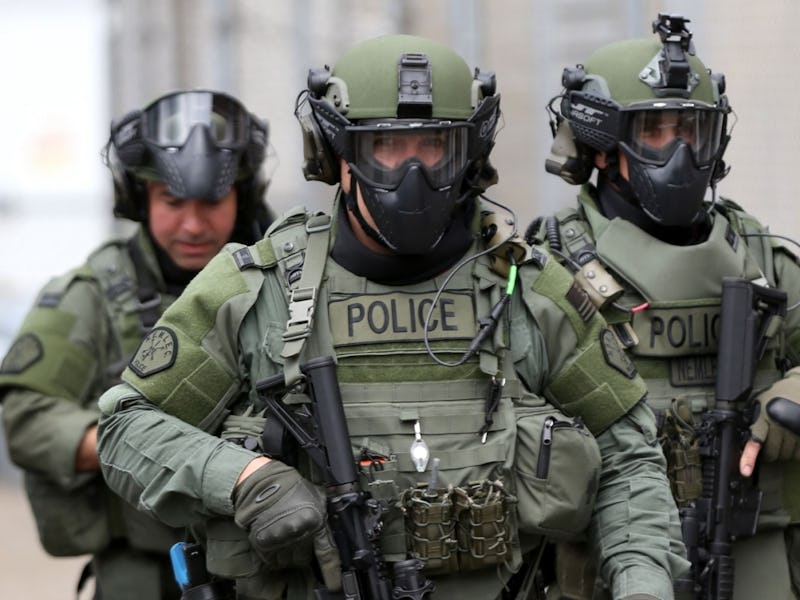In the Age of Twitch, Swatting Is a Pretty Bad Joke
It's a dangerous new problem.

On January 11, a federal grand jury in the state of Maryland indicted Zachary Lee and Robert Walker McDaid on charges associated with a “swatting” scheme, in which they “prank called” emergency services and falsely claimed there was a hostage situation. Armed police forces responded accordingly, entering the home of an unknowing victim before shooting the man in the chest and face with rubber bullets.
Swatting is a fairly new, possibly deadly “joke” that has followed in the rise of Twitch streaming. Gaming enthusiasts around the world stream video games on Twitch, providing hours of entertainment to devoted fans, and building entire online communities that are populated by thousands of people. While Twitch is generally a positive force in the world of gaming, there are a select few who seek to disrupt it. Death threats and phone calls mid-stream aren’t unusual for Twitch users, and now swatting has become an ever-present threat, since all it takes is a phone call to send armed law enforcement rushing to a streamer’s home because they think something terrible is going on inside.
When streamers’ addresses are leaked and circulated on the internet, they become easy targets for swatting. Some do it as a “prank”, while others have more sinister intent, using the threat of swatting to quiet streamers they wish to silence. Whatever the excuse, swatting is an invasive, life-threatening practice, and unfortunately, law enforcement officials have little knowledge or training to properly address it or prevent it.
Streamer Jordan “Kootra” Mathewson gets swatting mid-stream
The “swatter” will call the police, usually via Skype, services for the deaf, or an otherwise masked number, and reports a hostage or terror situation at the leaked address, spurring an emergency response. It’s law enforcement’s job to do so. SWAT teams then appear at the victim’s door, fully armed and guns ready. If the victim or their family panics and responds inappropriately, they risk being shot. Some people are repeat victims; the troll calling in emergencies from different anonymous numbers so that they are hard to track.
Sadly, there isn’t much Twitch can do about it — law enforcement officials largely have never heard of Twitch or swatting as a concept, making it difficult for frightened victims to explain their situation. As the issue persists, though, there is some progress being made, mostly within the Twitch community itself. Streamers have been getting in touch with local law enforcement to explain the situation, and request that they call them personally if a report is filed at the streamer’s address. Many streamers have taken to registering for P.O. Boxes rather than have their residential addresses doxxed or released on the internet.
The difficulty law enforcement faces when dealing with swatting makes the indictments of Lee, 25, and McDaid, 19, a relative rarity. In February of 2015, Lee used an internet telephone service to message McDaid, asking for his help because he had “someone I need sw@tted,” and he later bragged (albeit subtly) about the incident on social media.
Sadly, there’s still a lot more work that needs to be done, both by lawmakers and law enforcement agencies, to become better equipped to deal with this insidious crime. Hopefully cases like Lee and McDaid’s will become the rule, not the exception — or better yet, the swatting won’t happen in the first place.